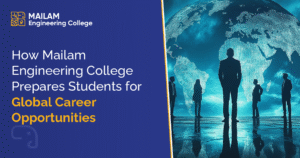Introduction
Choosing between science, arts, and commerce develops students’ academic direction. Each stream has its strengths, unique opportunities, and career paths, making it essential to understand the core subjects, skills, and scope each stream offers.
This blog will provide a detailed explanation about Science vs. Arts vs Commerce to provide the correct future viewpoint for students, including each stream’s pros and cons.
Top key difference and skills each stream
The following section describes the fundamental concepts, future career choice, pros and cons, and Key factors.
Fundamental differences between science vs arts vs commerce
Understanding Each Stream
- Science: Often the most challenging field, science focuses on studying the natural world through observation and experimentation. It contains Physics, Chemistry, Biology, zoology, Mathematics, and Computer Science. Science is ideal for students interested in careers in medicine, the food industry, engineering, technology, research, or any field where analytical skills and technical knowledge are essential.
- Arts: The Arts stream allows students to explore human culture, creativity, and expression. Subjects may include Literature, History, Political Science, Sociology, Psychology, and Fine Arts. This stream suits students who like creative pursuits, social sciences, and humanities, leading to careers in writing, psychology, design, history, or social work.
- Commerce focuses on key studies of trade, national economic growth, business, economics, organisation budget, and finance. Students learn about accounting, business studies, economics, and statistics, preparing them for balance sheets in business, finance, marketing, and economics careers. Commerce is a good fit for students interested in entrepreneurship, accounting, and management careers.
Factors to Consider When Choosing a Stream
Choosing between Science, Arts, and Commerce involves several critical factors. Students should consider their interests, strengths, and long-term career goals.
Here are some key elements to reflect on.
- Personal Interests: Considering what subjects are easy for you in school can help you decide. Science might be the right option if you enjoy experiments with plants, chemicals and lab work. If you are interested in literature or social studies, the arts might be your best choice.
- Career planning: Firstly, identifying your potential career paths can significantly boost your choice. Research more about the stream in which you want to pursue a degree. This kind of job research will give clarity about each field. For example, students interested in medicine or engineering would prefer science groups because if they score well in science, they can pursue MBBS, or if their score does not meet as expected, they can use the engineering field.
- Strengths and Skills: Evaluating your strengths is crucial. Students with strong analytical and mathematical skills may excel in science, while those with creative and critical thinking capabilities may succeed in Arts. Likewise, students with management handling suits for business concepts might be perfect in Commerce.
- Future Opportunities: Before filling out the admission form for a degree, try to think of a long-term goal for your career. Because of each stream, like science vs arts vs commerce, availability of college courses, classroom training, and job placements. Students should know the scope of higher education and the professional degrees associated with each domain.
- Senior Influence: While it’s vital to consider personal preference, yes, if you fit in well enough, try to proceed with it. Moreover, consult with other seniors, friends, or family members about your choice. Communicate openly with family members about career aspirations to balance their advice and personal goals.
| Did you know?The recent survey report from the All India School Education Survey(AINSC) clarifies that choosing the right stream after the 10th grade can significantly impact future career paths. Studies suggest that students who make the right decision based on their interests and strengths are more likely to succeed in their chosen stream. |
Pros and Cons of science vs arts vs commerce
Science Stream
Pros :
Wide Range of Career Options: Graduates can pursue careers in medicine, engineering, research, food technology, biotechnology, and more.
High Earning Potential: Fields like medicine and engineering often offer the best salaries.
Fundamental Knowledge: The core of understanding of science provides skills and knowledge applicable to various innovative and high-demand professions.
Cons :
Stress and Continuous Upskilling: The Science stream generally suits a person who has a heart for science. It involves more research courses, patience, and sometimes might create higher stress levels.
Requires Strong Commitment: Success in this stream demands significant time and effort, especially in understanding complex concepts like the nature of science and natural resources.
Arts Stream
Pros :
Flexibility and Creativity: The Arts promote free thinking, creativity, and self-expression, leading to a fulfilling career in creative fields or social sciences.
Broad Scope: Arts graduates can enter multiple career paths, including media, education, counseling, and public relations.
Less Competitive: Compared to Science, the Arts may offer a less competitive environment regarding higher education and job placements.
Cons :
Lower Value: Some people may view the Arts as less like not a professional degree or challenging than Science or Commerce.
Variable Payment Potential: Career opportunities in the Arts may only sometimes be financially rewarding compared to those in the Sciences or Commerce professions.
Commerce Stream
Pros :
High Demand for Graduates: Finance, accounting, and business management skills are crucial.
Various Career options: Graduates can enter roles in management, accounting, business analytics, marketing, consultant, and entrepreneurship.
Master Studies: The Commerce stream prepares students for professional courses like CA (Chartered Accountant) in Finance head, auditor or MBA (Master of Business Administration) in finance, marketing, or supply chain management.
Cons :
Accounts knowledge: Some students may find subjects like Accounting need to be more focused on digits, tallying daily expenses, and drafting journals and ledgers.
Investment in Education and Years: Pursuing master qualifications may require more years of study and financial investment.
Making the Right Choice for You
After considering each stream’s benefits and challenges, students must understand their preferences better. Here are a few strategies to ensure future choices lead to a stable career.
- Take Guidance: Talk to teachers, career counselors, or fieldwork experts to understand each stream’s requirements and opportunities.
- Involve different stream platforms: Try to attend career webinars or conferences for activities related to each stream. This can include science fairs, art exhibits, or business competitions. These experiences will help your passions.
- Attend Career Programs and Workshops: Participate in events focusing on different careers and fields of study. This phase can clarify which stream matches your interests.
- Experiment and Research: Take introductory courses if available. Many schools offer electives or initial classes that give students a taste of their interests and passions in each stream.
The Future: Career options of each stream
Understanding future career prospects attached to each stream can play a significant role in decision-making. Here are some prominent career options available based on the chosen stream.
Science Stream Careers
Medical Fields: Doctor, Nurse, Physiotherapist, Dpharm
Engineering: Mechanical Engineer, Civil Engineer, Electrical Engineer
Research and Development: Lab Researcher, Environmental Scientist
Information Technology: Software Developer, Data Scientist , Hardware engineer
Arts Stream Careers
Creative Fields: Graphic Designer, Writer
Social Sciences: Psychologist, Historian, Sociologist
Education: Teacher, Educational Consultant, professor
Media and Communications: Journalist, Public Relations Specialist, VJ ,RJ
Commerce Stream Careers
Finance: Chartered Accountant, Financial Analyst, Investment Banker, Finance manager
Marketing and Sales: Marketing Manager, Sales Executive
Business Management: Entrepreneur, Operations Manager
Economics: Economist, Policy Analyst
Strengths and Interests of stream
Strengths in Science and Mathematics often make Science a suitable choice.
Interest in finance, economics, or business can lead to success in Commerce.
Passion for social sciences, humanities, or creativity suits well with Arts.
Choosing Science, Arts, or Commerce After 10th: Mailam’s Guidance for Students
Mailam Engineering College supports students careers through a wide approach that combines academic background, skill development, and industry exposure. Our college provides personalised career guidance for each student. Through solid industry networks and collaborations, it organises workshops to help students choose the right career pathways based on their interests and strengths. Our college ensures students gain practical industry work culture through internships and industry projects. Additionally, the college offers training in technical skills, soft skills, and interview preparation, which makes students excel in job opportunities. Our 360-degree support allows students to achieve career goals in their respective domains.
- Job Fairs and Recruitment Drives: The college regularly organises job fairs and recruitment drives, offering students access to multiple companies looking to hire fresh graduates.
- Resume and Interview Preparation: The placement cell provides workshops and resources to help students develop effective resumes and interview preparation, enhancing their chances of getting their dream job.
- Technical Skill Enhancement: Our college provides access to resources and training in software and tools vital in engineering and technology, ensuring that students are proficient in the latest technologies.
Conclusion
Choosing between Science, Arts, and Commerce after 10th grade is a personal journey. Each stream offers unique job opportunities and career goals, with scope in both old and new technology fields. At Mailam Engineering College, we are dedicated to upskilling students through informed decision-making, ensuring they excel in a successful and suitable career view.
FAQ
1. Which stream has the most career opportunities?
Each stream offers significant career opportunities. Science often has a wide range of career chances , Commerce is ideal for business careers, and Arts provides flexibility for creative roles.
2. Can Commerce students pursue an MBA?
Yes, Commerce is an excellent choice for MBA studies, but students from any stream can pursue an MBA.
3. Are there high salary package jobs in the Arts stream?
Yes, careers in media, design, and international business relations offer best opportunities for Arts students.
4. Is Science harder than Commerce or Arts?
The difficulty level depends on the students aptitude and interest in the subjects.
5. How does Mailam Engineering College support students in career guidance?
Mailam Engineering College offers counseling and guidance programs to help students select suitable career choices and makes better for the future.







